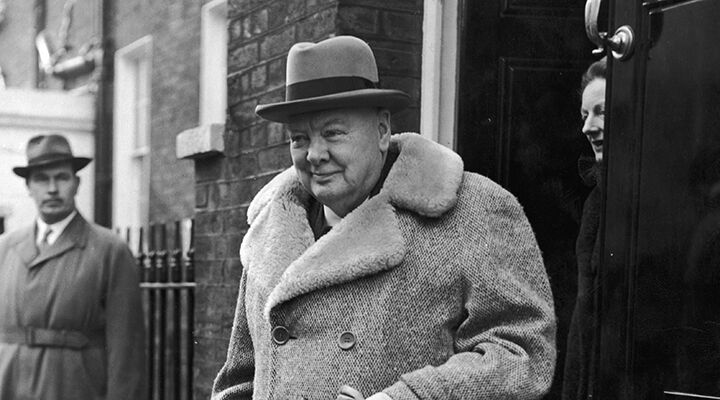
‘The Sun Is Going Down on the British Empire’
Following the funeral of Sir Winston Churchill, A. L. Rowse wrote, “The sun is going down on the British Empire.” On that bitterly cold day in 1965, Britain witnessed the greatest state funeral since the Duke of Wellington’s over a century before. Sir Arthur Bryant wrote, “The day of giants is gone for ever.”
It was an occasion for kings and commoners—from the Queen of England to the blue-collar Londoner—each coming in turn to honor Churchill’s memory. Although not many words were spoken that day, a feeling of despair could be felt as Britons realized what had actually left them. Winston Churchill left behind a legacy that included: “The savior of his country.”
Part of the funeral ceremony included transporting Churchill by train to his final resting place on the grounds of Blenheim, next to his parents. Martin Gilbert recorded this in the Epilogue of his final biographical volume on Churchill:
One of those on the train was Churchill’s wartime private secretary, Sir Leslie Rowan. ‘On that last journey by train from Waterloo to Bladon,’ he later wrote, ‘after the great crowds of London, two single figures whom I saw from the carriage window epitomized for me what Churchill really meant to ordinary people: first on the flat roof of a small house a man standing at attention in his old raf uniform, saluting; and then in a field, some hundred yards away from the track, a simple farmer stopping work and standing, head bowed, and cap in hand.’
Perhaps the greatest summary of his life’s legacy was by his daughter Mary Soames. In a letter to her father the year prior, she wrote: “In addition to all the feelings a daughter has for a loving, generous father, I owe you what every English man, woman and child does—Liberty itself.”
These various debates will go on. And they raise questions we should ask ourselves: What is the legacy of Winston Churchill’s life? Since he was so instrumental in one of the supreme victories of liberty, does his life contain lessons for us today? Fifty years on, will another man come on the scene to save our civilization from modern tyrants?
Western civilization today is an era of great events and little men. There are no great titans of war and democracy to guide us through these dangerous days. Fifty years ago we buried the last giant of the brave days of old. With the increasingly complex nature of our problems today, we need a statesman with foresight; one who is humble enough to learn the lessons of history, and bold enough to prevent them from happening again.
Winston Churchill was a political watchman. When he saw the rise of Hitler and the visions of doom from a Nazi triumph, he did not remain silent. The principles and peoples he cherished were under threat of extinction, and it fell upon him, and him alone, to carry the torch of freedom forward.
When you honestly access the current state of our world, and the multiplying problems facing us, how can you help but shudder a bit in anxiety knowing there is no one to lead us out of the jaws of death and defeat?
Gerald Flurry wrote the following in his booklet Winston S. Churchill: The Watchman:
Before World War ii, some people began to see Churchill’s value to Britain and the whole world. But today we live in good times and forget what he did and its importance to us.
He was a watchman used by God to help save the Western world. But Churchill’s example then was also intended to be a warning for us today! What value is a watchman if we forget his message?
A half century after his death, we still remember the words and deeds of Sir Winston S. Churchill and honor his contribution to our own livelihoods. His character and legacy will be debated. He has always had detractors and admirers, but now is the vital moment to grasp the true meaning of his legacy. In the age of nuclear weapons we cannot afford to repeat the mistakes of his generation. Whatever your opinion may be on this man, each of us can say with one accord that we owe him—and the great generation who sacrificed themselves—liberty itself.
